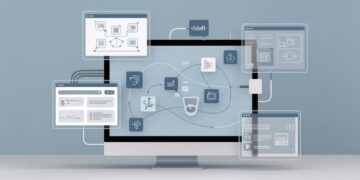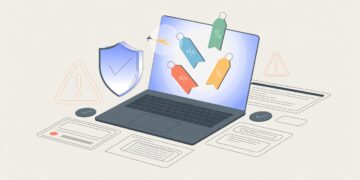If you operate a small business, you know business travel is essential. That’s why it’s important to keep track of all your mileage so you can claim deductions when tax season rolls around.
Mileage tracking apps make it easy for you to do that. They store your travel information, keep track of time and distance, and make reimbursements and deductions simple for you and your team.
Keeping Track of Your Expenses
Keeping track of your expenses is essential to the success of your small business. This can help you get reimbursed, manage your finances better, and take tax deductions that can save your company money.
Whether you use a spreadsheet, an app on your smartphone, or a notepad, you must easily record every expense to review and monitor your spending habits. This way, you can catch any problems or areas where your spending needs to improve.
Before you start tracking your expenses, make a budget. This will enable you to calculate how much cash you have available for expenses and where the surplus goes. You can use it to track your expenditures and determine how much you spend on your long-term objectives.
Organizing your costs into categories is another smart move. You can track where your money is going and stop wasting it in this way.
Discretionary costs can be separated from recurring critical charges and placed in a different bucket. By doing this, you’ll be able to cut back on unnecessary spending and increase your savings.
Modern mileage tracking apps can help you with this. It can help you organize your driving trips by date, purpose, and other categories and automatically log them into a tax-friendly format. In addition, it can help you get reimbursements or tax deductions for your mileage and transportation-related expenses.
Keeping Track of Your Miles
You must keep track of your miles if you’re a freelancer, online shop owner, or self-employed person and use your car for business trips. The IRS encourages you to track your mileage for reimbursement, and it can save you a lot of money come tax season.
You can keep track of your business miles by writing down odometer readings or using a mileage tracking app that uses GPS technology to monitor driving and record data on your phone. Many options exist, but you should find an easy system that works for your business.
A good mileage tracking app will also help you avoid issues with the CRA during tax season because it can verify your records. If you don’t keep accurate records, the CRA may not accept your mileage deduction, or they might audit you for inaccurate information.
The best mileage tracking apps for small business owners include features like automatic tracking, trip classification, a tax estimator, and data reports. They also allow you to categorize recurring expenses as business or personal and tag them as potential deductions.
Getting Reimbursement
Getting reimbursed for your mileage is a great way to help you keep your business finances in check. In addition to helping you avoid unnecessary tax liabilities, mileage deductions can also increase productivity and help your small business grow.
Whether you use a paper logbook or an app like MileIQ, it’s essential to track your trips accurately. If you don’t, you can pass up on tax deduction opportunities or put yourself at risk for an IRS examination.
Another benefit of tracking your mileage is that it can save you time. According to a 2017 report, manual mileage logging adds 21 hours of administrative costs per employee each year, which can significantly drain productivity.
However, an app can help you track your mileage quickly and efficiently, saving time and keeping you more productive at work. The key is finding a small business mileage tracker that suits your needs.
Some apps are designed to help small businesses and freelancers get reimbursed for their mileage. These apps can automatically detect and classify your trips, making tracking and reporting your business miles easy.
The IRS requires that your mileage logs contain the distance, start and end times and the purpose of each business trip. This information is vital to claim a mileage deduction for your small business or freelance work.
Getting Tax Deductions
Taxes are a pain for all of us, but they can be even more stressful when you own a small business. Luckily, there are a few ways to make your taxes more accessible and get more money back at the end of the year.
One of the most significant deductions for self-employed freelancers, gig workers, and small business owners is the mileage deduction. The IRS allows you to deduct a percentage of the miles you drive for work up to 3 years in a row.
You can claim this deduction’s standard mileage rate or expense method. If you choose the standard mileage rate, you only need to record your qualifying business miles and multiply them by a set amount per mile.
For the actual expense method, however, you need to track the actual cost of fuel, repairs, insurance, registration fees, and other vehicle costs. Please keep track of these expenses and multiply them by your total business miles for a deduction worth more than the standard mileage rate.
As a small business owner, you should use the most tax-friendly methods possible to save money on your tax bill. Consider using an excellent app to track your business mileage and expenses if you have a car. It’s a great way to stay organized and ensure your IRS-compliant records are easy to find.
Read more interesting articles on Tech new master















